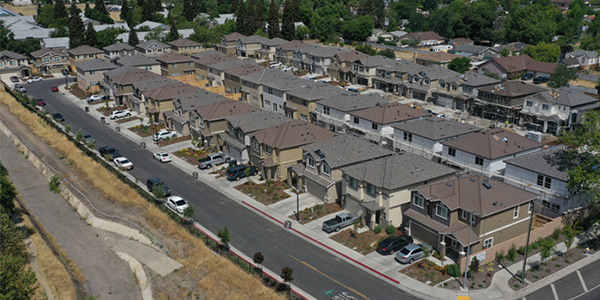Legislators in Sacramento introduced a spate of bills this session to ban natural gas from new construction, promote hydrogen as an alternative fuel source and increase demand response to head off future blackouts.
A number of bills deal with building decarbonization, including measures by Sen. Dave Cortese, a Democrat who represents much of Silicon Valley. Cortese introduced a package of measures to electrify public and private structures.
“California must commit to the rapid decarbonization of our buildings to remain a global leader in the face of our climate crisis,” Cortese said in a statement.
The bills he put forth would mandate that state buildings become carbon neutral by 2035 (Senate Bill 30), instruct state agencies to develop new building decarbonization standards (SB 31), and require all cities and counties to update their general plans with the aim to decarbonize buildings (SB 32).
Other decarbonization measures include Assembly Bill 33, which would ban new gas connections in public buildings after Jan. 1, 2022 and prohibit utilities from extending gas lines to new customers. The measure by Assemblyman Phil Ting, a San Francisco Democrat, was sent to the Assembly Committee on Utilities and Energy for consideration.
The move toward building decarbonization in California and other Western states is gaining momentum as state and local governments seek to reduce carbon emissions from natural gas furnaces, water heaters and stoves. (See Cap-and-trade Bill Emerges in Wash. Senate.)
Utilities such as the Sacramento Municipal Utility District are partnering with developers to build all-electric homes and communities.
More Calif. Measures
Additional 2021-22 bills deal with grid reliability after last summer’s rolling blackouts and the continued use of public safety power shutoffs to prevent electrical equipment from sparking wildfires.
Sen. Bill Dodd, a Democrat who represents Napa Valley and serves on the Senate Energy, Utilities and Communications Committee, introduced SB 99, the Community Energy Resilience Act of 2021, to require the state to implement a grant program for local governments to develop community energy resilience plans and ensure that a reliable electricity supply is maintained at critical facilities and in areas most likely to experience a loss of electrical service.
Another Dodd bill, SB 204, seeks to bolster demand response by large industrial users during times of tight supply, including by increasing incentives for curtailing energy use.
“The bottom line is that blackouts due to imbalanced supply and demand are completely unacceptable,” Dodd said. “We need to be proactive to prevent the risk of future blackouts.”
Sen. Nancy Skinner, D-Oakland, introduced SB 18 to boost adoption of hydrogen produced using renewable power sources such as solar energy.
“Green hydrogen offers many climate and energy co-benefits, including better utilizing curtailed power and better integrating renewable resources into the electrical grid to achieve greater than 100 percent zero-carbon energy and put renewable electricity to use to decarbonize many other sectors of the economy,” the bill says.
Skinner’s bill seeks a state “strategic plan for accelerating the production and use of green hydrogen” and recommendations on “how to overcome market barriers and accelerate progress in green hydrogen production and use.”
The fuel source is a potential competitor to battery-powered electric vehicles and could supplement natural gas in existing pipelines, advocates say.
Bills introduced in the 2021-22 session may fare better than energy-related measures in the previous session. In 2020, the start of the pandemic meant many bills died in committee as lawmakers stayed home or focused on measures to fight the coronavirus outbreak when they were in session.



